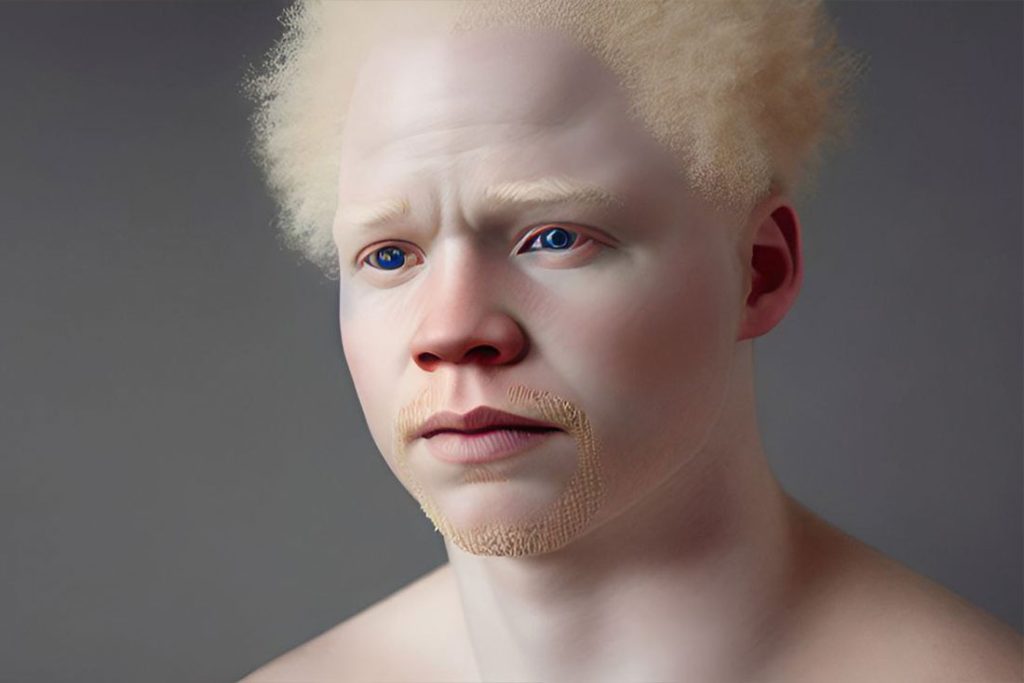Albinism in Cosmetology: A Comprehensive Guide
Albinism, a rare genetic condition characterized by a lack of melanin pigment, presents unique challenges and considerations within the field of cosmetology. Hair, skin, and eyes in individuals with albinism display noticeably different characteristics than in those without the condition, often necessitating specialized care and approaches. This in-depth analysis aims to shed light on albinism, its implications for individuals who have it, and the role of cosmetologists in providing appropriate care and services to these clients.

Albinism
Understanding Albinism
Albinism, medically termed as congenital hypopigmentation, is a condition that is present from birth. It is caused by genetic defects that affect melanin production, the pigment responsible for the color of the skin, hair, and eyes. Individuals with albinism usually have hair that ranges from white to light blonde, skin with a pinkish-white hue, and light blue to hazel eyes.
One of the most significant health concerns for people with albinism is their skin’s heightened sensitivity to sunlight, which results from the lack of melanin. This sensitivity can lead to sunburn and a heightened risk of skin cancer. Moreover, the lack of pigment in the skin often leads to premature aging.
The Role of Cosmetologists in Caring for Clients with Albinism
Given the unique characteristics and challenges associated with albinism, cosmetologists are often on the front lines of providing care and education to clients with this condition. Here’s how they can help:
Skin Care
Cosmetologists can offer tailored advice on skincare routines for clients with albinism. This can include recommending gentle, hypoallergenic skincare products that won’t irritate the skin. As people with albinism are more susceptible to sun damage, it is also crucial for cosmetologists to stress the importance of daily, broad-spectrum sun protection.
Cosmetic Advice
Makeup can play a valuable role in enhancing natural features and boosting confidence for individuals with albinism. Cosmetologists can provide advice on choosing makeup products that complement their clients’ unique coloring and skin sensitivity.
Hair Care
Hair care can be another area where cosmetologists can assist. Since the hair of individuals with albinism can be particularly delicate, advice about gentle hair care products and treatments can be beneficial.
Education and Advocacy
Aside from providing tailored skincare, haircare, and makeup advice, cosmetologists can play a significant role in educating clients with albinism about their condition. This can include providing information about the cause of albinism, its implications for their skin and hair, and measures they can take to protect themselves from sun damage and other potential issues.
Conclusion
In the field of cosmetology, providing care for clients with albinism requires a deep understanding of the condition and a dedication to meet these clients’ unique needs. With the right knowledge and approach, cosmetologists can significantly contribute to enhancing the quality of life for people with albinism, helping them navigate their condition with confidence and dignity. The beauty of diversity in human skin, hair, and eye color adds to the richness and intrigue of cosmetology, emphasizing the need for inclusive, personalized, and sensitive care for all clients, including those with albinism.






